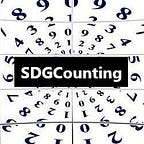Actions on Ocean Stewardship 2030: UN Global Compact Report Summary
By Brady Press
As we have been following the UN Sustainable Development Goals High Level Political Forum (HLPF), we’ve noticed that attention to the COVID pandemic crisis has understandably been overshadowing much of the good work, done in 2019 and early 2020, that would normally have been highlighted.
An example is the UN Global Compact Action Platform for Sustainable Ocean Business published Ocean Stewardship 2030 in May as a follow-up to their 2019 report entitled Global Goals, Ocean Opportunities .
In this article we summarize the findings of the report and provide a list of resources for other action-oriented initiatives on Goal #14.
A Shift Toward Ocean Stewardship
“Ocean stewardship is acknowledging our responsibility to care for the ocean and its resources, and ensuring just and equitable outcomes. It provides a new business logic with the purpose of safeguarding the resilience and productivity of ocean ecosystems for current and future generations’ wellbeing. Ocean stewards therefore seek holistic, ecosystem-based approaches to guide their operations [and advocate for cooperation between many stakeholders].”
The mindsets of consumers, CEOs, investors and shareholders is shifting away from traditional Corporate Social Responsibility (CSR) and toward Corporate Stewardship. More companies are realizing their dependence on the biosphere and their negative impact on the environment. In response, the financial sector has developed new sustainable mechanisms like blue bonds and technologies such as blockchain. Beyond finance, many industries impact the ocean’s health and can help achieve a more sustainable future.
Ocean Stewardship Recommendations
To enhance the five focus areas identified in 2019, the May 2020 report includes ten tangible “ambitions” and recommendations to guide policy makers and industry players in efforts to advance ocean sustainability.
1) Sustainable Seafood
The world’s population is growing, causing concern for hunger and food insecurity (SDG 2). Seafood is the most traded food commodity in the word, and has the power to provide more healthy food to support global, regional and local populations. To get there, we must:
- Ensure fully traceable food
- Bridge food production and dietary needs
2) Set Sail for Decarbonized Shipping
According to the report, shipping moves 80% of the world’s goods and contributes to 2–3% of the global greenhouse gas (GHG) emissions. UN Global Compact feels the maritime industry needs to lead sustainability efforts to reach zero emissions. The following steps should be taken across sectors:
- Apply international regulations to limit greenhouse gas from shipping
- Set up an international maritime research and development fund
3) Harnessing Ocean Electricity
Implementing large scale Offshore Renewable Energy (ORE) projects is necessary to support GHG emission reductions by 2030 and to achieve net zero carbon by 2050. To accelerate this process, industry leaders and policymakers must:
- Align policy with clear and targeted strategies to encourage adoption of ORE as a significant aspect of energy policy
- Target market conditions and economic incentives
4) Ending Waste Entering the Ocean
Plastic waste creates environmental risks and affects wildlife, the food chain, human health, tourism and recreation. In addition, nutrients, pesticides, sediments, etc. contribute to harmful water pollution. The outlined ambitions, which the report elaborates on in detail, are:
- End plastic waste entering the ocean
- End excessive nutrients entering the ocean
5) Mapping the Ocean
One of the most crucial aspects of improving ocean health is understanding the ocean and streamlining approaches to conservation and sustainability. The ocean is under-studied, and like data for the Global Goals more generally, ocean data varies within and across sectors. Oftentimes, essential data points are not able to be compared, creating serious roadblocks. Two key approaches are:
- Collect ocean data
- Ensure smart data sharing
Initiatives Referenced in the Report
UN Global Compact has not been alone in increased activity around Goal # 14. Here are a few other Sustainable Development Ocean resources mentioned in the report:
- Decade of Ocean Science for Sustainable Development: An initiative running from 2021–2030 to reverse the decline in ocean health and achieve better international cooperation between all communities studying and working toward ocean sustainability. It is currently in the preparatory phase.
- The Blue Food Assessment: A coalition of researchers working to put aquatic food on the global food policy agenda and to deepen public awareness of the role of aquatic foods in the global food system.
- The Poseidon Principles: A global framework signed by 11 leading banks which serves to promote the decarbonization of international shipping.
- The Alliance to End Plastic Waste: A global nonprofit organization with nearly 50 member companies across sectors investing in solutions to prevent plastic waste and to recover and create value from plastic waste.
Brady Press is an Associate Director at Changing Our World, where she specializes in building strategic corporate citizenship programs. She is a consultant to SDGCounting and StartingUpGood, and is currently researching how COVID-19 is affecting the Sustainable Development Goals.
